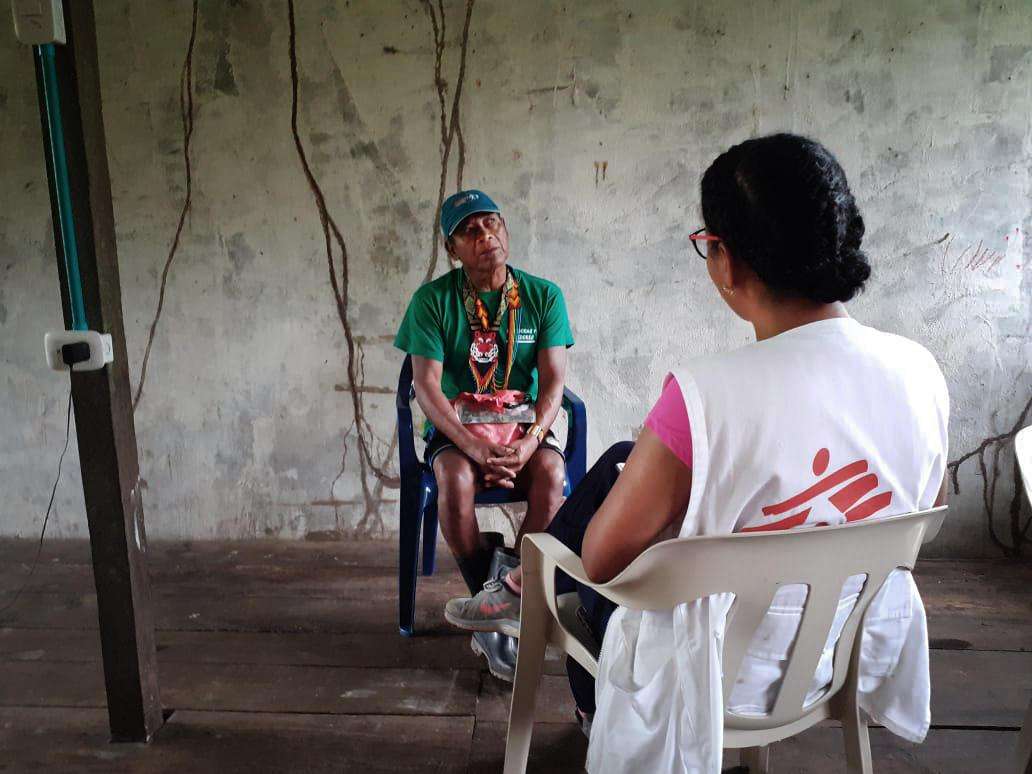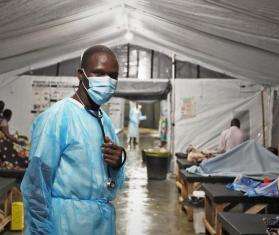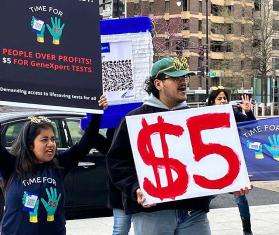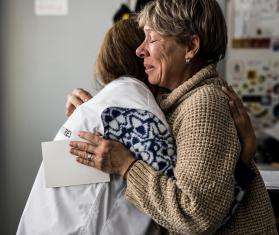The early days of the COVID-19 pandemic brought a brief pause to the violence and conflict that has plagued Colombia for generations. But over the past few months, people living in the Norte de Santander department, which borders Venezuela to the north, and the Nariño department, which borders Ecuador to the south, have been caught in escalating cycles of violence. Disputes between various armed groups have resulted in massacres, assassinations, threats, and widespread displacement.
Despite the 2016 peace agreement between the government of Colombia and the Revolutionary Armed Forces of Colombia (FARC), violence in several regions of Colombia resurged in late 2017. Renewed violence this year has reached levels not seen since the early 2000s, significantly affecting people’s physical and emotional wellbeing, according to Doctors Without Borders/Médecins Sans Frontières (MSF) teams on the ground. MSF teams have responded to several mass displacements and in the aftermath of massacres and violent clashes in the two departments. (Our teams were also present before the violence broke out, assisting local authorities in the response to the COVID-19 outbreak.)
“Six massacres have occurred within the department so far this year,” said Sebastián García, MSF coordinator in Norte de Santander. “Together with many other situations that have really harmed access to health [care] for much of the population, [this has] had a direct and very severe impact on all of their mental health.”
In the rural areas of Cúcuta, Tibú, and Puerto Santander—all in Norte de Santander—about 800 people took refuge in three schools after eight people were killed in the Totumito-Carboneras village. The displaced people included Colombians, Venezuelans, and Wayuú indigenous people. MSF teams provided them with emergency medical care, basic health care, and mental health care during the 18 days that they sheltered in the school. Staff provided follow-up mental health visits once people had returned to their homes.
Similar scenes have unfolded in parts of Nariño department, on the opposite end of the country. Communities in Magui Payán have been forced to flee seven times this year alone due to clashes between armed groups that are fighting to control the territory because of its strategic location in the Nariño Pacific area. In early October, MSF teams visited communities near the Patía River and found that all of the residents of San Luis village had been displaced from their homes and were sheltering in other towns and villages.
Our staff have seen the significant impact violence has had on people’s mental health. “They have a large degree of uncertainty where they don’t know if they will be able to return to their home or not,” said García. “The reality is, unfortunately, this is a situation experienced very often in these areas. It’s nothing new, nor do we know that it will be something that ends soon.”
Frequently witnessing or experiencing violence, combined with a permanent sense of danger, can cause high levels of stress and fear. Many patients are diagnosed with anxiety and depression. The continuing conflict and volatile security situation prevent people from resuming their daily lives. “As long as the situation remains unstable, people will be exposed to emotional suffering,” said Steve Hide, MSF’s head of mission in Colombia.
According to our teams, living conditions for displaced people is the biggest contributor to poor health. Our teams witnessed a lack of clean drinking water and poor sanitation, which frequently can lead to gastrointestinal disorders and skin diseases. Most of MSF’s patients also reported that they did not have access to medical services for long periods of time. “People have gone three months, six months, a year without being able to access a medical consultation,” said Garcia. The lack of appropriate medical care is especially concerning for people with chronic diseases, such as diabetes and hypertension, and for people with mental health disorders.
The direct effects of violence are worsened by the fact that many people have been excluded from health care. “The conflict is chronic, as is the absence of a response by the authorities,” says Hide. “The lack of trained medical staff and health facilities make it impossible for people to get treated in an emergency or access basic health care or mental health care. As the conflict rages, the likelihood of this changing is increasingly slim.”




